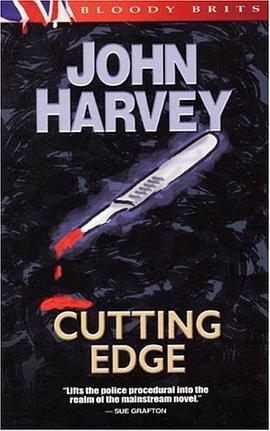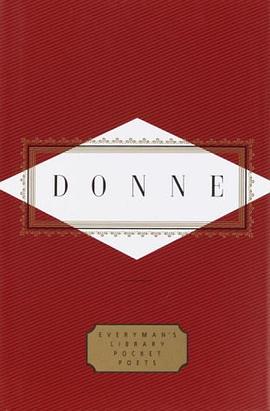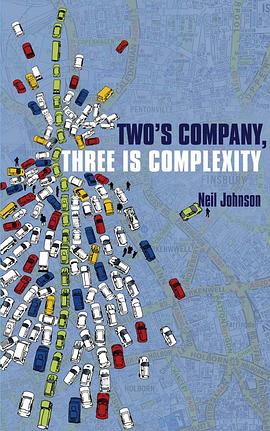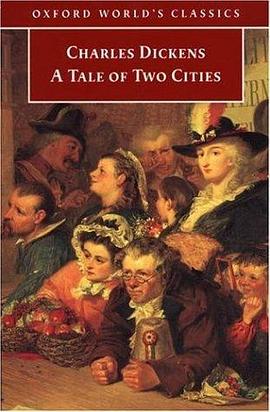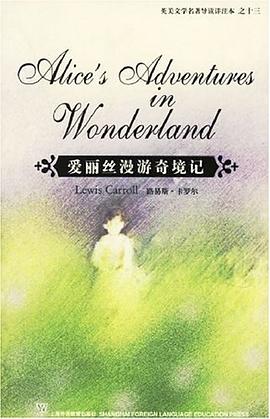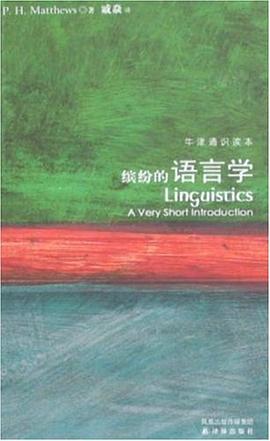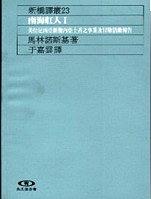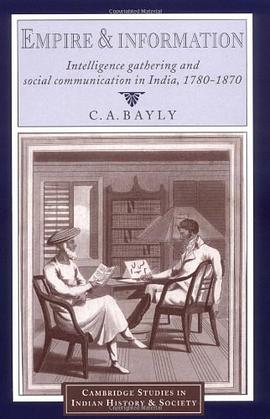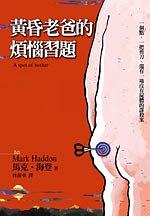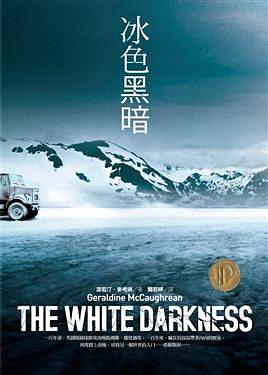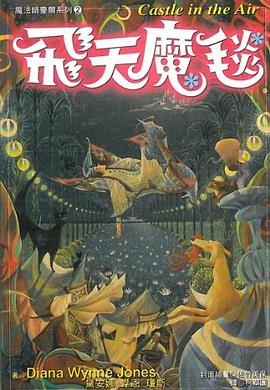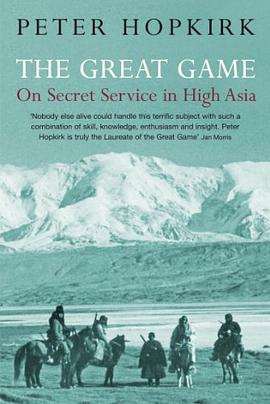

具体描述
For nearly a century the two most powerful nations on earth - Victorian Britain and Tsarist Russia - fought a secret war in the lonely passes and deserts of Central Asia. Those engaged in this shadowy struggle called it 'The Great Game', a phrase immortalized in Kipling's Kim.
When play first began the two rival empires lay nearly 2,000 miles apart. By the end, some Russian outposts were within 20 miles of India.
This classic book tells the story of the Great Game through the exploits of the young officers, both British and Russian, who risked their lives playing it. Disguised as holy men or native horse-traders, they mapped secret passes, gathered intelligence and sought the allegiance of powerful khans. Some never returned. The violent repercussions of the Great Game are still convulsing Central Asia today.
作者简介
Peter Hopkirk has travelled widely over many years in the regions where his six books are set --- Central Asia, the Caucasus, China, India and Pakistan, Iran and Eastern Turkey. Before turning full-time author, he was an ITN reporter and newscaster for two years, the New York correspondent of the old Daily Express, and worked for nearly twenty years on The Times; five as its chief reporter, and latterly as Middle and Far East specialist. In the 1950s he edited the West African news magazine Drum, sister paper to its legendary South African namesake. Before entering Fleet Street he served as a subaltern in the King's African Rifles --- in the same battalion as Lance Corporal Idi Amin, later to emerge as the Ugandan tyrant. No stranger to misadventure, Hopkirk has twice been held in secret-police cells --- in Cuba and the Middle East --- and also been hijacked by Arab terrorists. His works have been translated into fourteen languages. In 1999 he was awarded the Sir Percy Sykes Memorial Medal for his writing and travels by the Royal Society for Asian Affairs.
目录信息
读后感
原载2016年11月13日东早书评和澎湃,转载请注明出处。 在被萨义德称作“帝国主义的杰作”的小说《基姆》(Kim,1901)中,吉卜林创造了一个小男孩基姆。基姆的父亲是英国驻印度军团里的一位爱尔兰士官,在父母穷困而死后,基姆成了在印度街头流浪的孤儿。一次偶然的机会,基姆...
评分这一版的副标题被改成了The Struggle for Empire in Central Asia,用了美亚的试读确认是同一本书后购入,只要11块半。代价就是印刷质量,活脱脱一盗版书,居然字号偶有参差不齐,地图也不是很清晰,不过并不妨碍阅读。 作者基本上是站在英国的视角讲故事,因为有很多二手材料...
评分这一版的副标题被改成了The Struggle for Empire in Central Asia,用了美亚的试读确认是同一本书后购入,只要11块半。代价就是印刷质量,活脱脱一盗版书,居然字号偶有参差不齐,地图也不是很清晰,不过并不妨碍阅读。 作者基本上是站在英国的视角讲故事,因为有很多二手材料...
评分乌兹别克斯坦、土库曼斯坦、哈萨克斯坦。。。中亚一直是个神秘的存在,大博弈年代的英俄争霸,从另一个角度揭开面纱,使得人们更容易理解今天那里所发生的一切:历史总是有着前因后果。英俄当然是为了自身的利益涉足这些地方,但给这些地方带来了什么?是好是坏?这本书读完,...
评分历史上有无数次大国之间的博弈,作为专有名词的“大博弈”独一无二。 自拿破仑战争结束到1907年签订和约,英俄双方的竞争持续了近一百年。这是帝国与帝国的较量,一个称霸海上,全世界有4亿人口属于维多利亚女王的子民,地球上的24个时区均有英军驻扎,太阳无论何时都会照在她...
用户评价
《The Great Game》这本书,给我最大的感受是,历史的进程往往是充满偶然与必然的交织。作者在梳理那些错综复杂的历史线索时,展现了卓越的洞察力。他能够从看似毫不相关的事件中,找出它们之间的内在联系,并揭示出隐藏在表面之下的驱动力。我尤其欣赏作者对于“信息不对称”和“误判”在历史事件中作用的分析。那些关键的时刻,往往因为信息的缺失或错误解读,导致了截然不同的结果。作者在描绘这些场景时,充满了戏剧性,让我不禁为那些身处其中的人物捏一把汗。这本书也让我重新审视了“边界”的概念。那些在地图上看似清晰的界线,在现实中却是无数次冲突、谈判和妥协的产物。作者在讲述这些边界的形成和演变过程时,充满了史诗般的张力。我发现,这本书的叙事风格非常具有感染力,它能够轻易地将我带入到那个特定的历史语境中,让我能够感同身受地去理解那些人物的处境和选择。
评分《The Great Game》这本书,对我来说,是一次关于“信息”价值的深刻体验。作者在讲述那些关于情报收集、分析和传播的故事时,让我看到了信息在权力斗争中的核心作用。我尤其赞赏作者对那些“情报人员”的刻画,他们或许生活在阴影之中,但他们的每一次行动,都可能改变历史的走向。作者在描绘这些人物的内心挣扎和职业道德时,展现了非凡的敏感度。这本书也让我对“外交”这一职业有了更深的认识。那些看似平静的谈判桌背后,往往是无数次的试探、妥协和博弈。作者在描绘这些外交官的智慧和策略时,充满了戏剧性。我发现,这本书的结构非常精巧,它能够将不同的人物、事件和地域,有机地串联起来,形成一个完整而引人入胜的故事。每一次翻开这本书,我都能从中发现新的角度和新的思考,它让我对历史的理解,也变得更加立体和多元。
评分这本《The Great Game》的封面设计本身就充满了故事感,深邃的蓝色背景,隐约可见的山脉轮廓,以及一条蜿蜒的小路,都暗示着一段充满未知与探索的旅程。拿到这本书的时候,我就被它吸引住了,仿佛它已经承载了太多沉甸甸的历史与权谋。阅读的过程中,我发现作者在描绘那些遥远而神秘的地域时,并没有采用过于写实的笔触,而是巧妙地运用了大量的意象和象征,将那些地理上的挑战、文化上的差异以及政治上的博弈,转化为一系列引人入胜的画面。我尤其喜欢作者对于那些身处历史洪流之中的人物的刻画,他们并非脸谱化的英雄或反派,而是有着各自的动机、挣扎和信仰。通过对他们内心世界的细致剖析,我仿佛能够感受到那个时代背景下,个人选择所带来的巨大影响。这本书不仅仅是关于地缘政治的宏大叙事,更是一部关于人性的深度探索。那些看似不起眼的细节,比如某个官员不经意间流露出的疲惫,或是某个探险家在异乡感受到的一丝乡愁,都让这些人物变得鲜活而真实。作者对于历史细节的把握也十分到位,参考文献的严谨程度让我叹为观止,这无疑增加了这本书的可信度和阅读深度。每一次翻开这本书,我都能从中发现新的亮点,感受到新的启发。它让我重新思考了历史的进程,以及那些隐藏在表象之下的驱动力。
评分这本书《The Great Game》对我而言,更像是一次穿越时空的思想旅行。作者用他那如椽的笔,为我描绘了一个波澜壮阔的时代画卷,其中交织着野心、恐惧、策略与牺牲。我尤其被那些在夹缝中求生存的个体所吸引,他们或许不是历史舞台上的主角,但他们的每一个选择,都像微小的齿轮一样,推动着历史的巨轮前进。作者在展现帝国扩张的宏伟叙事的同时,也毫不回避那些隐藏在权力游戏背后的阴影——腐败、背叛和人性的弱点。这种对复杂性的坦诚,让这本书更具现实意义。我发现,这本书不仅让我了解了某个特定区域的历史,更让我对“权力”这一概念有了更深刻的理解。权力是如何被争夺、被使用、被滥用的?那些看似遥远的事件,在作者的笔下,与我们当下的生活,似乎有着千丝万缕的联系。作者的叙事节奏把握得非常好,时而细腻入微,时而波澜壮阔,让我始终保持着高度的阅读热情。他对于细节的关注,让我能够充分感受到那个时代的氛围,从衣着、饮食到交通方式,都仿佛历历在目。这本书的价值不仅仅在于知识的获取,更在于它能够激发我独立思考的能力,让我能够从不同的角度审视历史和现实。
评分读完《The Great Game》,我最大的收获是,历史的真相往往比我们想象的要复杂得多,也精彩得多。作者在处理那些关于情报、渗透和秘密行动的内容时,展现了非凡的技巧。他并没有将这些内容描绘得过于神秘或煽情,而是以一种冷静而客观的态度,揭示了这些活动在历史进程中所扮演的关键角色。我特别喜欢作者对那些“幕后英雄”的关注,他们或许没有光鲜的头衔,但他们的工作却直接影响着国家的命运。这本书也让我对“文化交流”有了更深的理解。那些在不同文化之间穿梭的人物,他们不仅仅是传递信息,更是在传递思想和观念。作者在描绘这些文化碰撞和融合的过程中,展现了非凡的洞察力。我发现,这本书的语言风格非常精准而有力,它能够用最少的文字,传达最丰富的信息。每一次阅读,都像是在进行一场智力上的角逐,我需要不断地去解读作者的意图,去体会他所传达的深意。
评分《The Great Game》这本书,让我对“战略”有了更全面的认识。作者在分析那些宏大的国家战略时,并没有回避其中存在的风险和不确定性。他详细地阐述了战略决策是如何在复杂的地缘政治环境中形成的,以及这些决策如何影响着国家的未来。我尤其欣赏作者在描绘那些军事部署和后勤保障方面的细节。这些看似枯燥的内容,在作者的笔下,却充满了紧张和刺激。我能感受到他在描述那些艰难的行军和物资运输时,所付出的巨大努力。这本书也让我对“民族主义”这一概念有了更深刻的理解。在那个时代,民族情感的激发和利用,在国家竞争中扮演着至关重要的角色。作者在分析这些民族主义浪潮的形成和演变时,展现了非凡的社会学和心理学洞察力。读这本书,我常常会感到一种“身临其境”的感觉,仿佛我就是那个身处历史洪流中的一员,感受着时代的脉搏。
评分《The Great Game》这本书,在我阅读的过程中,不断地刷新着我对历史的认知。作者的写作方式非常独特,他能够将宏大的历史事件,与个体命运的悲欢离合紧密地结合起来。我尤其欣赏作者在描绘那些在遥远边疆执行任务的探险家和士兵们时,所付出的艰辛和毅力。那些关于恶劣气候、疾病以及文化隔阂的描写,都让我感同身受。作者也并没有回避那些在权力斗争中出现的道德困境和两难选择。他将这些复杂的局面真实地呈现出来,让读者去思考其中的因果和影响。我发现,这本书的语言风格非常具有穿透力,它能够直接触及人内心深处的情感,引发共鸣。读这本书,我不仅仅是在学习历史知识,更是在进行一次关于人性、关于选择、关于命运的深度对话。它让我对“伟大”这个词,有了更深刻的理解,伟大的事业,往往需要无数个微小而坚定的步伐来铺就。
评分在我看来,《The Great Game》是一部能够“看见”历史的书。作者的描写非常生动,他能够通过文字,将那些已经消失的年代、场景和人物,在我们脑海中重新构建出来。我能感受到他在描绘那些异域风情时,所注入的热情和细致。那些关于当地的语言、习俗、地理环境的描述,都让我仿佛身临其境。更重要的是,作者在分析那些政治事件时,并没有简单地将原因归结于某个领导者或某个政策,而是深入挖掘了更深层次的社会、经济和文化因素。这种多维度的分析,让我对历史事件的理解更加全面和深刻。我发现,这本书也让我对“地图”这一概念有了新的认识。在那个时代,地图不仅仅是地理信息的载体,更是战略意图和国家实力的象征。作者在描述勘探、测绘以及地图绘制过程中的惊心动魄,让我看到了知识和技术的价值。读这本书,我常常会感到一种强烈的共鸣,尤其是当作者描绘那些为了理想、为了信念而奋斗的人物时。他们的坚持和勇气,总是能点燃我内心的某种热情。
评分《The Great Game》这本书给我带来的震撼,不仅仅在于其宏大的历史格局和错综复杂的人物关系,更在于作者如何将这些庞杂的元素融合成一股强大的叙事力量。我常常在想,在那个信息相对闭塞的时代,信息的传递和解读是如何影响国家命运的?作者在这方面展现了惊人的洞察力。他通过对各个情报网络、密谋会晤以及外交辞令的细致描绘,将“信息战”的概念具象化,让我深刻理解了在看不见的战场上,语言和知识的较量同样激烈。这本书中最让我着迷的部分,是作者对不同文化背景下人们思维方式的对比分析。那些看似微不足道的文化习惯、宗教信仰,甚至是日常的交流方式,都在无形中塑造着人们的决策和行为。这种跨文化的视角,让我对理解世界有了更深的层次。我特别欣赏作者在处理那些关键的历史时刻时,所展现出的那种冷静而客观的态度。他并没有试图去评判谁对谁错,而是将事实呈现出来,让读者自己去思考。这种留白的空间,反而让书中的讨论更加持久和深刻。读这本书,就像是进行一场智力的冒险,我需要不断地将零散的信息拼接起来,构建出完整的图景。作者的写作风格非常具有画面感,仿佛我能亲身置于那些冰天雪地的山脉,或是金碧辉煌的宫殿之中,感受着空气中弥漫的紧张与期待。
评分《The Great Game》这本书的书写方式,与其说是历史记述,不如说是充满魅力的文学创作。作者的文字功底极佳,他能够将复杂的政治博弈和军事行动,用一种引人入胜的方式呈现出来。我特别赞赏作者在构建情节上的巧思,他总是能在看似平淡的叙述中,埋下伏笔,然后在关键时刻揭示真相,这种“惊喜”让我对接下来的阅读充满了期待。在阅读的过程中,我常常会暂停下来,去思考那些人物在做出决定时的处境和考量。那个时代,信息的获取渠道有限,做出一个决定往往意味着巨大的风险。作者对这种不确定性的描绘,让我对那些历史人物的勇气和智慧有了更深的敬意。这本书让我明白了,历史并非由少数伟人书写,而是由无数个普通人的努力和选择共同塑造。作者在处理那些分散在不同地域、不同文化背景的人物时,展现了非凡的驾驭能力。他能够捕捉到他们之间微妙的联系,并将他们纳入同一个宏大的叙事框架之中。读这本书,就像是观看一部史诗级的电影,每一个场景都充满张力,每一个人物都栩栩如生。
评分A galloping read.....
评分A galloping read.....
评分书是好书,佩服作者吊人胃口的能力,但多余的话也是有点多,而且不看作者都知道是个英国人也写的。
评分俄國&奧圖曼:辣雞遊戲毀我人生,直接刪號,再玩砍手www 英國:不是很懂你們二次元,次は何をしますか?
评分书是好书,佩服作者吊人胃口的能力,但多余的话也是有点多,而且不看作者都知道是个英国人也写的。
相关图书
本站所有内容均为互联网搜索引擎提供的公开搜索信息,本站不存储任何数据与内容,任何内容与数据均与本站无关,如有需要请联系相关搜索引擎包括但不限于百度,google,bing,sogou 等
© 2026 book.quotespace.org All Rights Reserved. 小美书屋 版权所有

